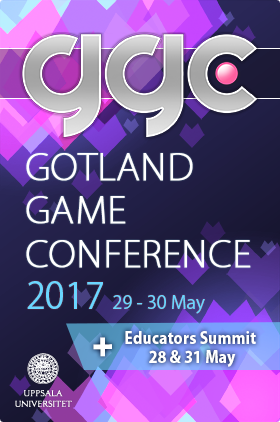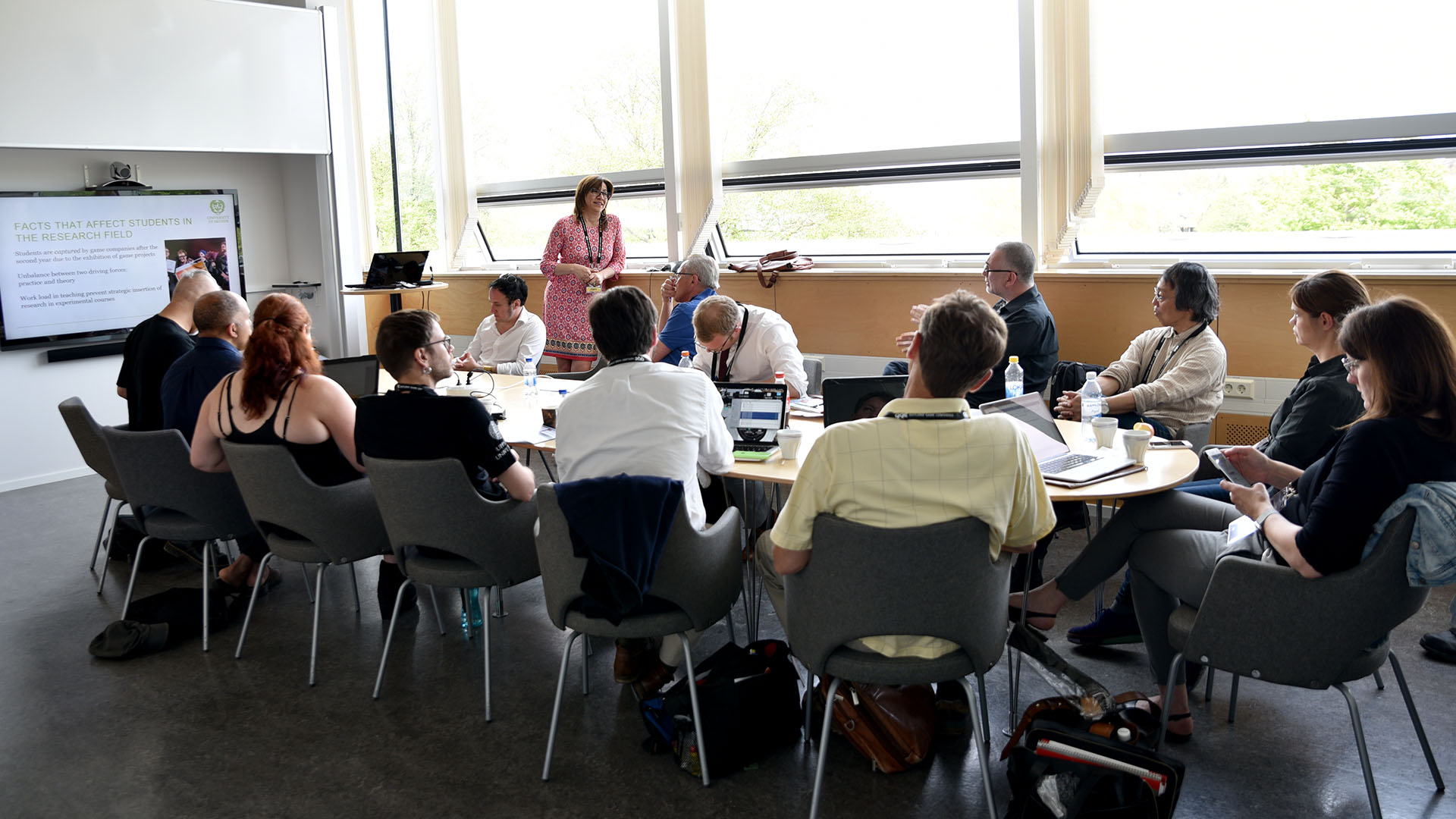Game Educators Summit
Over the past 10-15 years, educations for game design and development have appeared in a number of universities across the globe. The Game Educators Summit is designed to bring everyone together and take stock of where we are now: discuss what have we learned, look at how we teach, reflect on our common problems, and more importantly; ask where we go from here?
Split into two days and bookending the Gotland Game Conference, The Department of Game Design at Uppsala University, in conjunction with the Higher Education Video Games Alliance (HEVGA), intends for the summit to build bridges between educations and provide some clear actions to improve the field we work in. We believe that, as a young interdisciplinary subject, we need a platform that speaks for us all: a unified advocacy, a media amplifier taking local achievements global, a better way to secure funding, knowledge and a network that recognizes the cultural, scientific, and economic importance of game educations in colleges and universities.
- 28/5 – Summit Day 1: Presentations
- 31/5 – Summit Day 2: Working Day
Summit Day 1 (28/5): Presentations
4-8 slots available – ranging from 15 – 45 minutes. Have something to share? Want to give a micro-talk? Submit your idea here!.
Some topic suggestions:
- Practical work and examination thereof, in advanced educations
- Social responsibility and the norm breaking potential of game developers
- Inclusive education – how can we improve diversity and representation in our educations
- How to do internships well; documenting learning outcomes and keeping our students safe
- Bring Your Own Topic!
29-30 May: Gotland Game Conference
The Summit includes full access to the Gotland Game Conference – including the VIP-only booth crawl in the evening of the Summits’ first day; letting you play all the games on the show floor before the general public swarms them.
Summit Day 2 (31/5): Discussions
The day will start with an presentation by the Higher Education Videogame Alliance, before we break into groups based on personal interests. We suggest the following tracks, but are open to adding more or changing these out, depending on what the participant feel is most relevant on the day!
Research (Magnus Johansson)
As a new, interdisciplinary subject how do we do research? What field “owns” it? How do we ensure competences in our own field? Do we struggle with Game Design/Development research done in its own right?
- How do we deal with the interdisciplinary nature of the field?
- What are our methodologies?
- How do we secure finance?
- How do we educate our students/staff in the field?
- How do we secure Game Design/Development Research?
- What do our research labs look like – Theoretical or Practical?
The Shape of a European Alliance (Hans Svensson + HEVGA)
HEVGA works as a great alliance in the US. How do we create something like it for Europe?
- There are many universities per country – how do we build a network that works in specific countries, as well as across borders?
- ERASMUS lets us skillshare. How do we build a network of lecturers?
- How do we: unite universities across a country, across borders?
- If we have success in one country, how do we help promote that in others?
- How do we – as a whole – lobby Europe?
- How do we combine knowledge to enrich the entire community?
Industry Outreach (Adam Mayes)
There’s an ongoing discussion about what the industry needs, and what education teaches. How do we deal with this?
- Are we entirely vocational?
- Who do we talk to? Military? Gambling? Just Games?
- Who do we not talk to?
- How do we interface with Industry?
- Interning? How do we handle this?
- Do we place?
- How do we ensure students safety/learning?
- What about studios as part of the education for internal internship?
Base education (Adam Mayes)
- What do we teach in Undergraduates?
- What do we teach in colleges? How do they prepare students for university?
- What do we teach at Masters levels? What is Advanced Level Game Design?
- What subjects do we give Masters in?
- How do we deal with Student Projects?
- What are our approaches to copyright and “intellectual property”?
- How do we validate learning?
- How do we deal with multi/interdisciplinary issues?
Academia (Steven Bachelder)
Game educations have been spawned in many different departments across the arts and sciences. These can range form computer and systems sciences, Informatics, HCI, Literature studies, Film studies, Art, Graphics, Visualization, Architecture or even Psychology departments.
- How has this has influenced their development and where do they find themselves today.
- Is there a difference in being situated in the humanities rather than the natural sciences? Or in art academies?
- How have these educations been influenced or impacted in their development by where they were spawned?
- What hard earned insights or perspectives have we who have worked trans-disciplinary gained that could provide greater agility in academic or artistic method?
- What educational constructs will best facilitate the exchange of knowledge, insight and practice necessary to fuel the understanding and advancement of games as a cultural form and a cultural possibility in the future?

